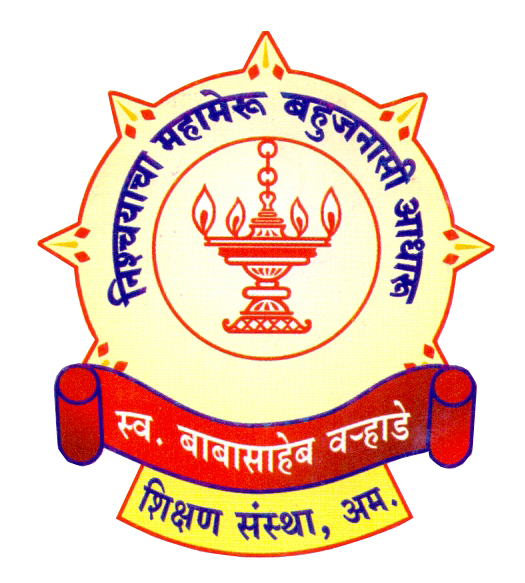
Late Babasaheb Varhade Education Society, Amravati's
MAHATMA JYOTIBA FULE COMMERCE, SCIENCE & VITTHALRAO RAUT ARTS COLLEGE, BHATKULI, DIST. AMRAVATI
Affiliated to Sant Gadge Baba Amravati University, Amravati
Re-accredited by NAAC with Grade "B"



The purpose of education in general and higher education in particular is to facilitate actualizationof human potential by making its stakeholders, particularly higher educational administrators,teachers, and learners conscious about human values and professional ethics. The principal valuesare discussed in brief as follows:
• Love & Compassion: Love is the all-pervading life energy. It finds its manifestation in sincere care for others, kindness, empathy and compassion and is unconditional. True love leads to compassion.
• Peace: The scope of peace includes peace at the individual level and at the world level. For world peace, peace at the level of individual, society and nations is imperative.
• Truth: In professional life, the simplest manifestation of truth is in sincerity that can be seen in terms of commitment to work.
• Non-Violence: Ahimsa means non-killing. Non-violence is a result of restraint from consciously doing any harm through one’s thoughts, speech or action to any entity, living or non-living.
• Righteousness: Righteousness is the backbone of core human values and also of human existence. It involves conduct of life and action by practicing propriety and decorum at every stage. It covers ethical guidelines, ethical behavior and moral righteousness.
• RenunciationorSacrifice: Renunciation has two preconditions: care as well as love for all living beings attended by absence of selfishness. Renunciation begins when selfishness ends.
• Service: When love and compassion for others and willingness to sacrifice for others out of love take the form of action, it becomes service. Service is possible only when one loves others as one’s own, not as other.
Human values are mankind’s deepest moral aspirations and form the foundation of human cultureand lives as individuals and as societies. The need is to inculcate and practice them consciously tobe a good human so that s/he can realize his/her potentials as a human being.
Values are to be learned through practices. Hence, the administrators and teachers in highereducation need to bear in mind that they are being watched and observed by their peersandlearners in general and they (peers/learners) are learning values by observing them (seniorsand peer learners). So the ambiance in and around higher educational institutions should be suchas would be conducive to value education and bring qualitative change in life and work at home and workplace with professional ethics. Human values and professional ethics, thus, are indispensable steps in the odyssey of transformational learning and life of happiness andgreatness.
Ethics has been described as standards of conduct that indicate how one should behave based onmoral duties and virtues arising from principles about right and wrong. Professional ethics concerned with the concept and framework of moral right or wrong as applied to a professional organization, execution policies and behaviors. Though education in its truest sense is not aprofessional, for practical purpose here we would address it to be a profession so that aninstitutional framework of ethics in higher education may be propounded.
Some guidelines based on surveys in Indian organizations suggest that: administration must be transparent; decision must be taken in public interest; administrators should leave behind their caste, community, and language in their own homes; corruption must be punished; discriminatory privileges should not be given to officials; persons at all levels must be encouraged to think and to give their advice freely, and; entire administration must be geared to tackle by itself or through other organizations the menace - poverty. Various studies in Indian context suggest that organizations can encourage moral behavior by: communicating expectations that employees will behave ethically and define what that means; hiring at the top who set good examples; rewarding ethical behaviors and punishing unethical behaviors; teaching employee basic tools of ethical decision making, and; encouraging discussion of ethical issues.